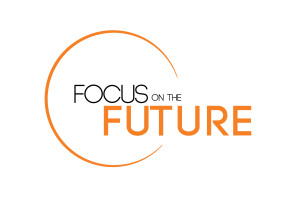Work has already begun on Focus on the Future recommendations
January 19, 2018

By Emily Christensen
New majors, growing targeted existing programs, and expanding online course options were just a few of the nearly 60 recommendations put forth by the Focus on the Future committees tasked with exploring opportunities to help guide the college in the coming years.
“It is especially fitting we took on Focus on the Future in the 500th anniversary year of the Protestant Reformation. Reformation is not a one-time event. It is an ongoing process of remodeling, reconsidering, and reorganizing to keep moving forward. That’s what these task forces were enlisted to do,” said President Darrel Colson. “Higher education is notorious for moving slowly, but we knew we couldn’t wait to capitalize on the success of the Transforming Tomorrow campaign. We must keep moving the college forward in important ways.”
Last fall, Colson and the Board of Regents reviewed the recommendations and agreed on ones the college should make a priority in the coming months and years.
Among the ideas the college will move forward on are:
Increasing the number of faculty in engineering science to better accommodate the program’s growing number of students.
Enhancing and expanding the college’s capacity to offer online or hybrid courses, which will allow more flexibility for students studying, interning, or pursuing other experiential opportunities off campus.
Developing new and meaningful relationships with organizations that can help the college by offering internships, job opportunities, and other partnerships.
Increasing the college’s commitment to ensuring that at-risk student populations have the same opportunities to succeed as others on campus.
“There were so many people involved from so many different aspects of the college, we were able to put forth very good recommendations,” said Dr. Todd Reiher, a Wartburg professor of psychology who served as a Focus on the Future co-chair. “I think one of the potential secondary goals that really is important is if this helps us develop a culture of change and innovation and willingness to examine all that we do and not be afraid to change.”

From February through September 2017, a dedicated group of more than 150 Wartburg faculty, staff, alumni, and friends met regularly in seven Focus on the Future task forces to discuss opportunities centered around three strategic areas of focus:
• Academic innovation, with task forces on engineering science, health sciences, and interdisciplinary programs.
• Student success, with task forces on the living and learning environment and student recruitment, support, engagement, and satisfaction.
• Expanding our reach, with task forces on experiential learning and entrepreneurial endeavors, and regional partnerships.
Other priorities will include the creation of the Department of Health and Human Performance, finding specific approaches to implement an administrative unit for interdisciplinary programs, ways to structure the college’s expectation for all students to pursue and complete high-impact learning opportunities, and the addition of more master’s degree programs. The college also is partnering with Credo, a higher education consultation firm, to determine how better to allocate and repurpose space to support these new endeavors.
“These ideas enjoy support within our own campus community as well as among our constituents, and I believe that they are potentially practical to implement,” Colson said. “They raise lots of questions, obviously, but we shouldn’t be deterred by questions; we should be energized.”
